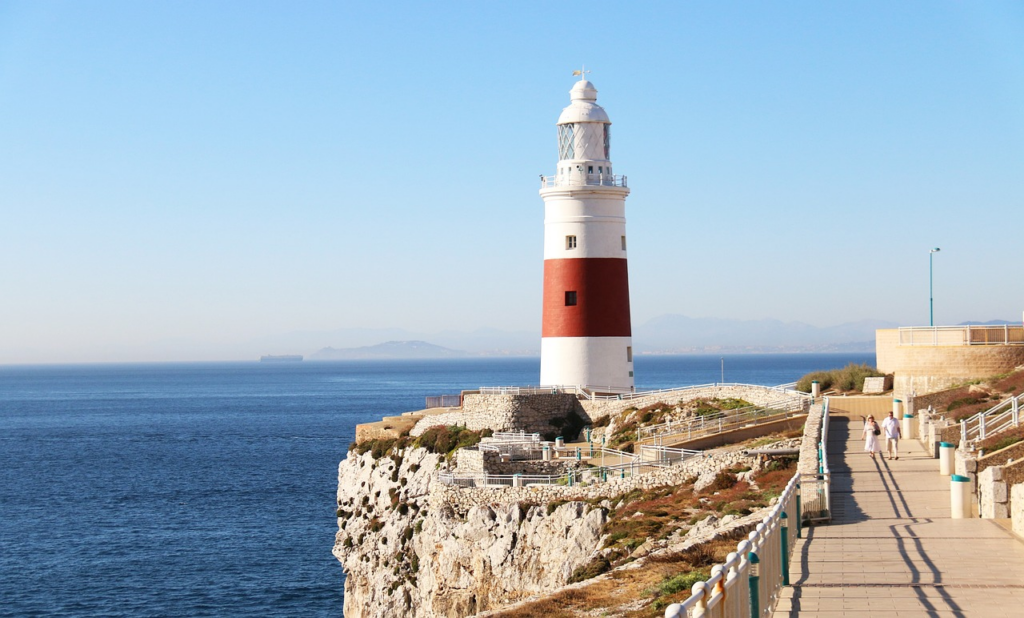Traveling to Europe is a dream for many people, but it can seem like a complex task for those planning it for the first time. In this comprehensive guide, we'll cover everything from what you need for your trip to the costs involved, as well as highlighting some of Europe's must-see spots.
What do I need to travel to Europe?
Before embarking on an adventure in Europe, it's important to make sure you have all the necessary documents. For Brazilian citizens, the basic requirements include:
Valid passport
A valid passport is one of the most important documents for anyone planning to travel to Europe or any other international destination. It serves as official identification issued by the government of your country of origin and is essential for crossing international borders.
When we talk about a valid passport for traveling to Europe, it's important to understand a few considerations:
- Passport validity: Before you travel, check the expiration date of your passport. Most countries require passports to be valid for at least six months beyond your intended return date. This means that even if your passport is still valid during your trip, if it is about to expire within six months of your planned return date, you could run into problems at immigration.
- Blank pages: In addition to validity, check that your passport has enough blank pages for entry and exit stamps in the countries you intend to visit. Some countries may require one or more blank pages for visa stamps or other immigration formalities.
- Visas: Depending on your country of origin and the specific country you intend to visit in Europe, you may need to obtain a visa before you travel. Check the visa requirements for each country you intend to visit and make sure you apply in advance if necessary. Visas are sometimes issued based on the validity of your passport, so keep this in mind when planning your trips.
- Consulate or embassy: If you need to renew your passport or apply for a visa, contact the consulate or embassy of the country responsible for these services. They will provide you with all the necessary information and guidance on how to proceed.
- Care and protection: During your trip, keep your passport in a safe place and protect it from theft or loss. Also consider making copies of your passport and keeping a separate copy in case of emergency.

Visa (if required)
A visa is an essential document for many international trips, including those to European countries. It is issued by the government of the country you intend to visit and is usually placed in your passport, authorizing your entry and stay for a specific period of time.
The need for a visa to travel to Europe varies according to the traveler's country of origin and the specific country they intend to visit. Citizens of some countries can enter certain European countries without a visa, while others may need to apply for a visa before traveling.
- Visa requirements: Before planning your trip, check whether you need a visa for the countries you intend to visit in Europe. This can be done by consulting the website of the consulate or embassy of the country you intend to visit, or through online services that provide up-to-date information on visa requirements.
- Visa types: Visa types vary according to the purpose of your trip. For example, some European countries issue tourist visas, while others issue business, student or transit visas. Make sure you apply for the correct type of visa according to your travel intentions.
- Application procedure: The visa application process can vary depending on the issuing country and your country of origin. In general, you will need to fill in an application form, provide supporting documents such as airline tickets and hotel reservations and, in some cases, attend an interview at the consulate or embassy.
- Processing times: Visa processing times can also vary, so it's important to apply for your visa early enough before your planned date of travel. Some visas can be processed in a few days, while others can take weeks or even months to be approved.
- Visa fees: Some countries charge fees for issuing visas, which can vary in terms of the amount and method of payment accepted. Make sure you are aware of the applicable fees and prepare to pay them during the visa application process.
- Visa validity: Check the validity of the visa issued to ensure that it covers the entire period of your planned stay in Europe. Also, make sure you understand the conditions of the visa, such as the number of entries allowed and the maximum length of stay.
Travel insurance
Travel insurance is a fundamental part of planning any trip, including those to Europe. It offers financial protection and assistance in the event of unforeseen events during your trip, ensuring that you are covered in situations such as medical emergencies, trip cancellations, lost luggage and other unexpected events.
- Medical cover: Travel insurance provides cover for medical expenses in the event of illness or injury while traveling. In Europe, healthcare costs can be high, especially if you need hospital treatment or medical repatriation to your home country. Travel insurance ensures that you have access to the medical care you need without worrying about exorbitant costs.
- Trip cancellation: If you need to cancel your trip due to a medical emergency, family problems or other unforeseen circumstances, travel insurance can reimburse non-refundable costs such as airfare, accommodation and pre-paid tours.
- Travel delay or interruption: If your flight is canceled or delayed, or your trip is interrupted due to adverse weather conditions, strikes or other situations beyond your control, travel insurance may cover additional expenses such as accommodation, meals and alternative transportation costs.
- Lost or stolen luggage: If your luggage is lost, stolen or damaged during your trip, travel insurance can cover the cost of replacing essential items such as clothes, medicines and electronic devices.
- 24-hour travel assistance: Many travel insurance policies offer 24/7 travel assistance to help you in emergency situations, such as locating medical services, coordinating medical evacuation, language translation and legal assistance.
Credit/debit card
A credit/debit card is an indispensable financial tool for traveling to Europe, offering convenience, security and flexibility for making financial transactions during your trip.
- Convenience: Credit/debit cards are widely accepted in Europe in stores, restaurants, hotels and many retail outlets. This provides a convenient way to make payments without the need to carry large amounts of cash.
- Security: Credit/debit cards offer an additional layer of security compared to cash. If your card is lost or stolen, you can contact the card issuer immediately to block it and prevent fraudulent use. In addition, many cards offer fraud protection and insurance cover for purchases made with the card.
- Favorable exchange rates: When using a credit/debit card to make purchases or withdraw money in foreign currency in Europe, you generally get a more favorable exchange rate compared to exchanging currency at bureaux de change or banks.
- Access to ATMs: Debit cards offer convenient access to ATMs around the world, allowing you to withdraw cash in the local currency as needed. However, be aware that withdrawal fees may apply in some cases, so it's important to check your bank's policies regarding withdrawals abroad.
- Additional benefits: Some credit cards offer additional benefits for travelers, such as travel insurance, emergency medical assistance, access to VIP lounges at airports and rewards programs that allow you to accumulate miles or points for future trips.
Itinerary and reservations
Planning a detailed itinerary and making reservations in advance are crucial steps for a successful trip to Europe.
- Research and planning: Before you start putting together your itinerary, do some detailed research on the destinations you want to visit in Europe. Consider your personal interests, budget, time available and travel preferences when choosing the destinations and activities you want to include in your itinerary.
- Define your route: Based on your research, define a route that includes the destinations you want to visit and determine the order in which you want to visit them. Consider logistics, such as distances between destinations, travel time and available means of transportation.
- Length of stay in each destination: Determine how long you want to spend in each destination to ensure you have enough time to explore the main sights and enjoy the local culture. Balance the time between destinations to avoid your trip becoming too rushed or tiring.
- Booking accommodation: Book accommodation in advance, especially if you're traveling during high season or to popular destinations. Research different accommodation options, such as hotels, hostels, apartments or holiday homes, and choose the one that best suits your needs and budget.
Also, make sure you are aware of the specific entry requirements of each country you intend to visit, such as mandatory vaccinations or quarantine restrictions.
What is the minimum amount to travel to Europe?
The cost of a trip to Europe can vary significantly depending on your style of travel, length of stay, destinations chosen and time of year. However, it is possible to provide a general estimate to help you plan your budget.
Flight tickets
Ticket prices can vary, but it is possible to find cheap fares if you book in advance. Estimate between R$ 2,000.00 and R$ 5,000.00 for a return flight from Brazil to Europe, depending on the destination and the season.
Accommodation
The average cost of accommodation varies according to the type of accommodation you choose, from budget hostels to luxury hotels. Calculate between R$ 100.00 and R$ 500.00 per day for accommodation, depending on the city and type of accommodation.
Food
Food costs can vary depending on your lifestyle and gastronomic preferences. Estimate between R$ 50.00 and R$ 150.00 per day for meals.
Transportation and tours
Allow an additional amount for local transportation, sightseeing and other extra expenses. Estimate between R$ 50.00 and R$ 200.00 per day for these additional costs.
Based on these estimates, a traveler can plan a minimum budget of approximately R$ 300.00 to R$ 900.00 per day for a budget trip around Europe, excluding the cost of airline tickets.
How much does a trip to Europe cost?
The total cost of a trip to Europe can vary widely depending on the factors mentioned above. For a two-week trip to Europe, including airfare, accommodation, meals, transportation and tours, the average cost can vary between R$ 5,000.00 and R$ 15,000.00 per person.
It's important to remember that these figures are only estimates and may vary depending on your individual choices and the specific circumstances of your trip.

What not to miss in Europe?
Europe is full of incredible destinations and unmissable sights. Here are some suggestions of places to include in your itinerary:
- Paris, France: Explore the Eiffel Tower, the Louvre and Notre-Dame Cathedral in this romantic and culturally rich city.
- Rome, Italy: Discover the historical treasures of the Colosseum, the Pantheon and the Trevi Fountain in this ancient and fascinating city.
- Barcelona, Spain: Stroll through the unique architecture of Antoni Gaudí, relax on the sunny beaches and taste the delicious Catalan cuisine.
- Amsterdam, Netherlands: Explore the city's charming canals, visit the Van Gogh Museum and experience Amsterdam's vibrant nightlife.
- Prague, Czech Republic: Marvel at the medieval architecture, visit Prague Castle and enjoy the romantic atmosphere of this charming city.
These are just a few examples of incredible destinations in Europe, but the continent offers so much more to explore. Be sure to do your research and plan your itinerary according to your personal interests and travel preferences.
Traveling to Europe can be an unforgettable experience, provided it is properly planned and budgeted. With the necessary documents in hand, a carefully calculated budget and a well thought-out itinerary, you'll be ready to explore the charms of this diverse and fascinating continent. Bon voyage!
See also: How long does a round-the-world cruise take? See the duration
April 1st, 2024

She has a degree in Literature - Portuguese/English, and is the creator of the Escritora de Sucesso website. As a writer, she seeks to expand everyone's knowledge with relevant information on various subjects. At Trend-Topics, she brings news and content ranging from entertainment to the country's economic situation.






